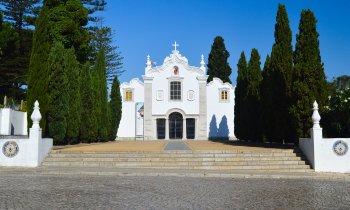Explore the best places
Heritage in Portugal
Igreja Matriz da Amadora
- heritage
Praça da Igreja, 28
2700-458, Amadora
Church where the bell tower with clock stands out, visible from several spots of the city. Inside it has three altars, dedicated to the Sacred Heart of Jesus, Saint Joseph and Our Lady of Fátima. The sculpture of Our Lady of Conceição, patron saint of the city, stands out.
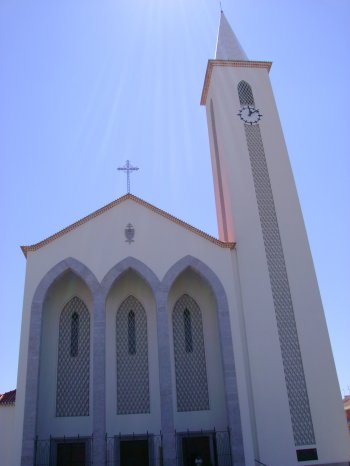
Quinta do Assentista
- heritage
Rua Elias Garcia, 116
2700-708, Amadora
Also known as Quinta dos Intendentes, the main façade dates from 1746, in which the Johannine gate stands out, despite the simplicity of the façade's features. At the top you can see a niche that houses the image of Nossa Senhora da Saúde. Inside, it has a living area, patio and gardens, in which you can admire various tree species, fountains, garden benches and a chapel.
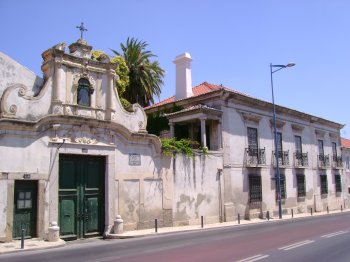
Núcleo Monográfico da Necrópole de Carenque
- heritage
Lugar de Tojal
2700, Amadora
The municipal museum of archeology includes the monographic nucleus of the necropolis of Carenque, where it is possible to observe 3 artificial caves dating from the end of the 4th millennium BC, discovered in 1932. The necropolis of Carenque, National Monument, is a permanent exhibition on the Neolithic/ Chalcolithic of the region surrounding the caves.
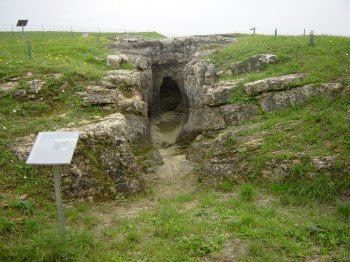
Aqueduto das Águas Livres
- heritage
Carenque - Palácio de Queluz
2720, Amadora
Belonging to the set attached to the Águas Livres aqueduct, it is an extensive stone aqueduct created to carry water to the Terreiro do Paço de Queluz for the royal stables' consumption. The work was created at the site of two springs: the Gargantada spring and the Pocinho spring, and served several fountains in Queluz. Built by King João V in 1731, it was only finished in the mid-19th century. The main section is 14 kilometers long, eight of which are in the municipality of Amadora.
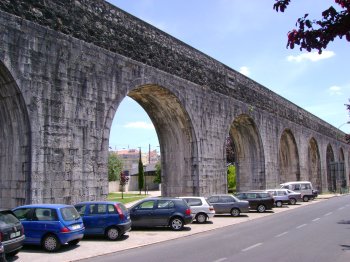
Fortaleza da Torre Velha / Torre de São Sebastião de Caparica
- heritage
Porto Brandão
2825, Porto Brandão
Fortress prior to the Belém Tower intended, together with it, to protect the entire Tagus area. It is considered the oldest Portuguese maritime defense fortification.
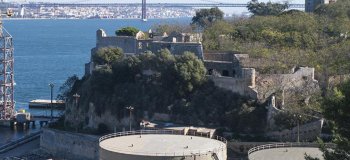
Solar dos Zagallos
- heritage
Largo António Piano Júnior
2815-716, Almada
First floor palatial house with entrance patio, access staircase to the two noble halls (built to receive King D. João VI). In the beautiful garden, the avenue and the tiled benches stand out. It currently has a Traditional Arts Center that promotes various cultural initiatives, namely exhibitions, concerts, recitals and initiatives for the little ones.
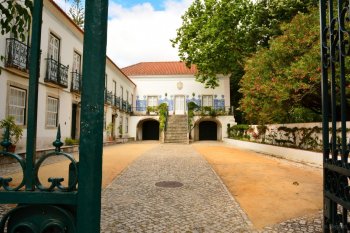
Casa da Cerca
- heritage
Rua da Cerca
2800-050, Almada
Situated on top of a cliff, Casa da Cerca has a privileged view of the Tagus River. It is part of a set called "Quinta da Cerca", considered the most characteristic example of 18th century civil architecture in the city of Almada. This is where the Contemporary Art Center works, which regularly hosts individual, group and thematic exhibitions.
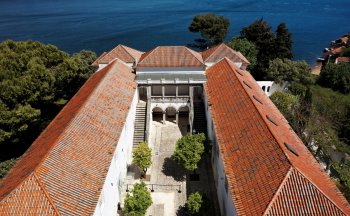
Fragata D. Fernando II e Glória
- heritage
Largo Alfredo Dinis
2800-252, Almada
Located at dock nº 2 of the former Parry & Son, in Cacilhas, the Frigate D. Fernando II e Glória is a 19th century vessel, the last ship of the "Carreira da Índia", and can be visited throughout the year. There, it is possible to learn about the history of the museum ship, which was restored in 1992, after a fire destroyed part of it, in 1963, and was open to the public at EXPO 98. Through an audio guide, it is possible to delve into naval history and travel back in time.
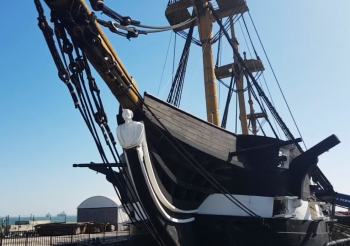
Museu Naval
- heritage
Olho de Boi
2800-205, Almada
The Naval Center holds a vast collection that illustrates the centuries-old connection of the riverside area to the river and the sea, with particular emphasis on traditional wooden shipbuilding. It has a Documentation Center, whose objective is to disseminate to the population and the educational community, in particular, information on thematic areas of its bibliographic collection, with emphasis on archaeology, art, conservation, naval construction, history, local history, museography, numismatics and heritage.
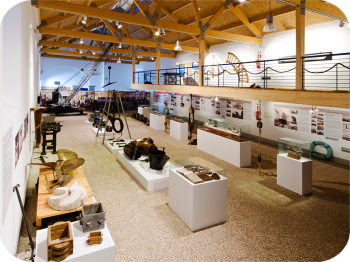
Convento dos Capuchos
- heritage
Rua Miradouro dos Capuchos
2825, Caparica
Convent built by D. Lourenço Pires de Távora in 1558. It has a façade surrounded by corners topped off in the acroteria by flames and an interior porch with three arches. The large window of the choir is topped by a niche with a clay sculpture. In the galilee, tile panels stand out. Located in the area of the Protected Landscape of Arriba Fóssil da Costa de Caparica, from there you can contemplate the landscape of the coast of Lisbon, Estoril and Cascais.
